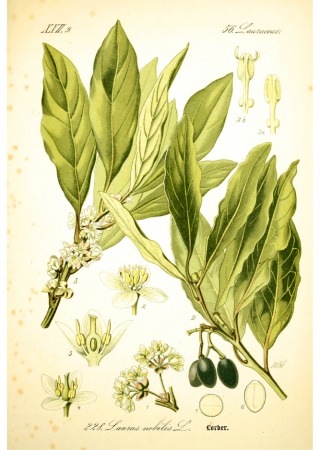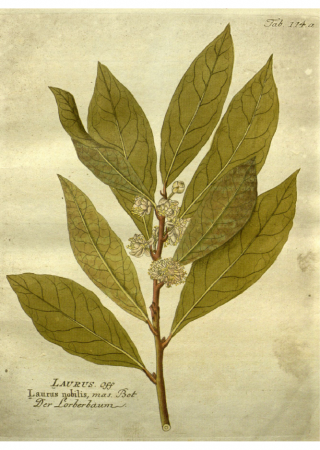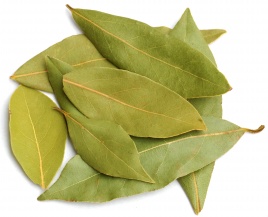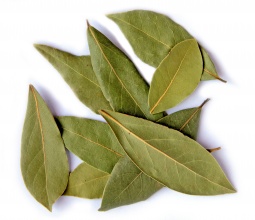Bay leaf
- …Bay Laurel can grow up to 15 meters high?
- …Bay Laurel in Greek mythology guarded against lightning strikes and sprigs under the head were reputed to bring good dreams?
- …bay leaves are still harvested in the fall by hand?
- …laurel wreaths were considered a symbol of victory in battle, or in sporting events?
- …bay leaves are used to repel insects from food supplies?
- …laurel trees raised in greenhouses are often used to decorate public rooms and halls?
- …celebratory laurel wreaths are made from the same plant as the one whose leaves lie so modestly on our spice shelves?
Dalmatian goulash
750 g boned chuck roast
150 g bacon
50 g onion
2 tablespoons paprika
½ tablespoon cayenne pepper
3 cloves garlic
2 tablespoon tomato paste
3 bay leaves
2 dl red wine
lemon peel
caraway, pepper, salt
Cut bacon into small cubes. Heat with chopped onion, meat chopped into cubes, paprika and cayenne. Mix in sliced garlic, caraway, pepper, salt, tomato paste, marinate with wine, add water and simmer until meat just begins to soften. Add bay leaves, pinch of lemon peel and simmer until tender. Add water or let water evaporate as necessary, to make goulash thick. Serve with boiled potatoes.
In antiquity, bay leaves or laurel was widely revered. It was considered to be the plant of the god Apollo, portrayed as a young man with wavy hair adorned with a laurel wreath. The legends state that Apollo, god of the sun, fell in love with the nymph Daphne, who was changed into a laurel tree. Pythia, the oracle at Delphi spoke her prophecies apparently because she chewed laurel leaves and sat on a three-legged stool shrouded in laurel. Young doctors in the Middle Ages, upon successfully finishing their studies received laurel wreaths. They called themselves "Bocca laureati" which in time became "baccalaureate", or bachelor. Poets, artists and prophets were decorated with laurel wreaths and addressed with the honorific laureate, a term still used today.





